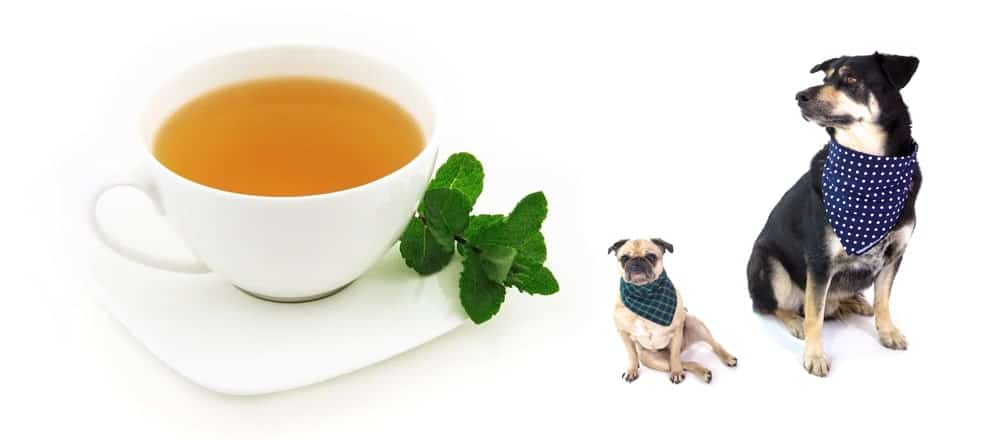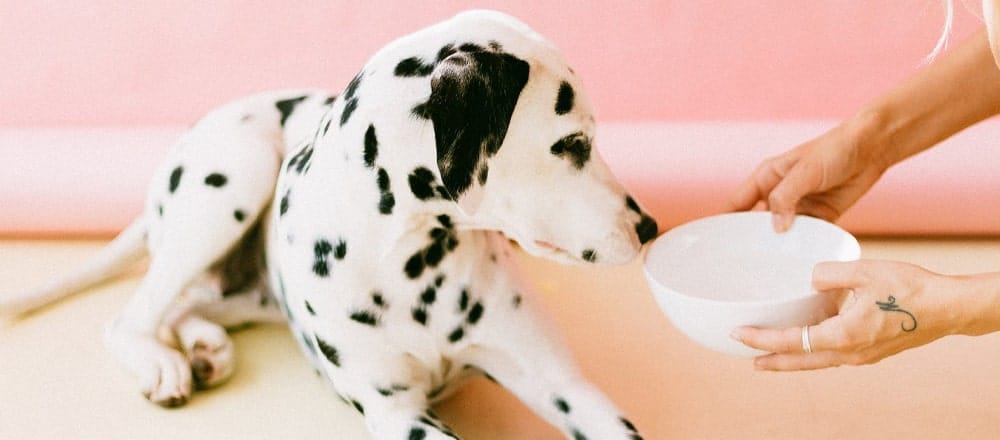Can Dogs Drink Tea and Is it Safe?

Man’s best friend deserves a treat as much as we do. This is especially the case now as they keep us sane during these difficult months. One question we’re asked often is, “Can dogs drink Tea?” So much so, in fact, that it’s about time we wrote an article about it.
Please keep reading to find out the latest information on whether it’s advisable to give your pooch a cuppa.
We’ll first explore the basics of, “Can dogs have Tea?” and then make a case for and against. A frequently asked questions (FAQ) section will follow.
Whether you’re a dog owner who wants to ensure the health of your beloved creature or, simply, want to show your love, we’ll deliver the facts. Best of all, you can buy the finest quality Loose Tea at The Kent and Sussex Tea and Coffee Company.
Table of Contents
- Can Dogs Have Tea?
- Is Tea Bad for Dogs?
- Is Tea Good for Dogs?
- Frequently Asked Questions (FAQ)
- Can Dogs Drink Herbal Tea?
- Is Green Tea Toxic to Dogs?
- Can Dogs Drink Earl Grey Tea?
- How Much Essiac Tea Should I Give My Dog?
- Can Dogs Eat Tea Leaves?
- Is Camomile Tea Good for Dogs?
- Can I Give My Dog Ginger Tea?
- Is Black Tea Good for Dogs?
- Conclusion

Can Dogs Have Tea?
We’ll start with the fundamental reason why you’re here: Can dogs drink Tea? It depends on several factors. Perhaps most crucial to note is that so-called “real” Tea from the Camellia sinensis Tea plant contains caffeine.
This stimulating chemical compound provides an energy boost to humans – as it does, technically speaking, to our furry friends when they drink Tea.
The next question is, “Are dogs allowed Tea while it has caffeine in it?” In small doses – but it shouldn’t be why you give it to them. There appear to be no correlations between its consumption and long term issues.
However, we’re talking about preliminary research (emphasis on “preliminary”). The bottom line is, yes, dogs can drink Tea, but it comes with a minor element of risk.

Is Tea Bad for Dogs?
We’ll get the cons out of the way regarding, “Is Tea harmful to dogs?” You might know already – from experience – that too much caffeine leads to side effects.
Common complaints include headaches, jitteriness, sleeplessness and trouble focusing. The same is true for dogs – and it’s much easier for them to experience such issues as, well, they’re almost always smaller than us. They’re also built differently.
It could be worth reading more about Caffeine Levels in Tea and Coffee before making a brew for your canine. What you want to be wary of giving your pet a potentially toxic amount, however rare such an occurrence would be.
The alternative is to choose Decaf Tea or even Herbal Tea, which prompts a whole other question: What kind of Tea can dogs drink? We’ll explore that later in the blog.

Is Tea Good for Dogs?
Get ready for some good news. The consensus around, “Can I give Tea to my dog?”, appears to be “absolutely.” And if you’re wondering, “Is Tea healthy for dogs?”, it has the potential to get even better.
While concrete evidence surrounding its medicinal qualities in dogs remains minimal, there are numerous personal accounts – including some from our very own customers.
People have reported that their pet’s health and wellbeing improved after long-term Tea drinking (remember: in small amounts). Most types contain a wealth of vitamins, minerals and antioxidants, which support the lives of humans and animals alike.
This could (and we mean “could”) culminate in the likes of better digestion, boosted immunity and reduced risks of developing a multitude of chronic conditions.

Frequently Asked Questions (FAQ)
A brief recap before we jump headfirst into the FAQ section: When it comes to, “Can dogs drink Tea?”, you should consider a few things. Most crucial is to recognise that any infusion from the Camellia sinensis plant – be it Green, Black, White or Oolong – contains caffeine.
Too much of it can harm your dogs, leading to adverse caffeine side effects. The flip side is that small quantities are safe and perhaps beneficial.
The chances are, however, that many of your questions haven’t yet been covered. And there is, indeed, quite a lot still to explore. Should you be interested in, “Can dogs drink Herbal Tea?”, “Is Green Tea toxic for dogs?” or even, “Can dogs eat Tea leaves?”, then worry not.
Your queries and quirks will be addressed below. Here is your ulti-mutt (get it?) guide to, “Can dogs drink Tea?”

Can Dogs Drink Herbal Tea?
There is Tea in the conventional sense, and there is Herbal Tea. The former involves leaves from the Camellia sinensis plant. The latter does not. Is Tea OK for dogs when it’s a herbal infusion?
You might not be surprised to hear, once again, that it depends. Most people tend to believe that giving it to your pets is safe. However, it might be worth speaking to a veterinarian prior to doing so.
The type of Herbal Tea you choose is the most vital consideration. Varieties such as Rooibos, Echinacea and Peppermint Tea might improve digestion in your pooches.
Others could have the opposite effect or worse. One of our most noteworthy recommendations comes from a customer who gives Olive Leaf Tea to their dog. Whichever Herbal Tea you decide, be sure to monitor your animal’s welfare throughout.

Is Green Tea Toxic to Dogs?
Green Tea is the second-least processed Tea. It retains much of its natural chemical structure – a trait that influences its antioxidants. Indeed, the less work done to the leaf, the higher levels of beneficial chemical compounds it contains.
Paradoxically, it doesn’t have as much caffeine as Black Tea, which is the most processed type. Can dogs have Green Tea with this in mind? Is Green Tea extract safe in dog food?
Any caffeinated infusion to come from the Tea plant is toxic in excessive amounts. It then becomes a question of defining “excessive.” Experts indicate that you’d have to give small dogs at least five cups of Tea to have an impact.
Much like a speed limit sign, however, it shouldn’t be seen as a target to reach. In other words, treat it as a guide where the more cautious you are, the better it is.

Can Dogs Drink Earl Grey Tea?
Earl Grey is traditionally a type of Flavoured Black Tea. The critical component is bergamot oil, which derives from a citrus fruit called Citrus bergamia.
Legend has it that Charles Grey, 2nd Earl Grey, (1764 – 1845) had something to do with its naming. In recent years, we have created new and delicious blends such as Earl Grey Green Tea and Rooibos Earl Grey Tea.
This seems like a good place to remind you that, should you pick “regular” Earl Grey Tea, then you’re getting a highly-caffeinated Black Tea. We’ve mentioned it before but we’ll mention it again: Too much caffeine could cause harm or even poison your dog.
We therefore recommend no more than a small amount, and, by a small amount, we mean finishing off your cuppa once you’ve drunk most of it.

How Much Essiac Tea Should I Give My Dog?
Essiac Tea is a Herbal Tea made famous for its alleged anti-cancer properties. The blend often includes burdock root, slippery elm, sheep sorrel and Indian rhubarb.
It was a Canadian Ojibwa nurse, Rene Caisse, who first popularised its consumption. Proponents claim that it can neutralise cancer cells while stimulating immunity and aiding detoxification. Critics believe that the evidence is questionable at best.
Can you give your dog Tea when it’s Essiac Tea? And if you can, then how much Essiac Tea should you give your dog? All we know with any certainty is that canines with kidney issues (e.g. kidney disease or stones) should steer clear of it.
This is because its oxalic acids could act as an irritant to the kidneys. Should you decide to try it with your pet, think “less is more” and times it by ten.

Can Dogs Eat Tea Leaves?
Allow us to return to our customer who gives his pooch Olive Leaf Tea for its well-documented Olive Leaf Tea Benefits. They don’t make a brew but “sprinkle” the leaves into dog food.
The reason, they say, is that their furry friend enjoys chewing on them. There is also a bonus in the fact that Olive leaves are anti-inflammatory, antiviral and antifungal.
Can dogs eat Tea from the Camellia sinensis plant? The same rules apply to letting them drink the leftovers in your morning cuppa. In other words, so long as you’re mindful of the caffeine contained within the leaves, then small amounts should be fine.
What you don’t want to do is let your canine “wolf” down an entire packet in one sitting – a recipe for disaster.

Is Camomile Tea Good for Dogs?
Camomile Tea is another example of a Herbal Tea. It belongs to the Asteraceae (daisy) family, the two most common varieties of which are Roman Camomile (Chamaemelum nobile) and German Camomile (Chamomilla recutita).
Both have a close association with improved sleeping patterns. They taste great, too, offering a delightfully floral flavour with sweet, earthy undertones.
While the nuances of its character might be lost on your pooch, its ability to act as a sedative could be useful. Some customers have also asked, “What does Camomile Tea do for dogs’ eyes?”
Quite a lot, it appears, as, according to accounts, it acts as a natural eyewash solution (once cooled, of course) capable of treating conjunctivitis. Even better – it’s 100% void of caffeine.

Can I Give My Dog Ginger Tea?
Ginger (Zingiber officinale) is a member of the Zingiberaceae family. It is a spice often blended with lemons to make Lemon and Ginger Tea. Yet there is also the option to enjoy it as a standalone infusion.
The latest scientific research recognises its ability to promote weight loss, treat colds and the flu, and even increase blood circulation. But can you give your dog Ginger Tea?
Yes – but once again, if unsurprisingly, in moderation. It contains many antioxidants capable of supporting your dog, particularly if they have motion sickness or gastrointestinal issues.
What’s more, Ginger Root Tea is anti-inflammatory, which could help older dogs suffering from arthritis. Then there is the fact that it is a caffeine-free Tea – though such a trait shouldn’t translate into a free-for-all for your furry friend.

Is Black Tea Good for Dogs?
You probably know the answer to this last question already, but we’ll talk about it all the same. If Earl Grey, a type of Flavoured Black Tea, is generally safe for consumption in dogs, then so is normal Black Tea.
Such is the case, in fact, for all Black Tea varieties from Assam to Darjeeling to Lapsang Souchong. That should, hopefully, clear up the question, “Can dogs drink Tea?” once and for all.
Instead of droning on about Caffeine in Tea and Coffee yet again, we’ll take this opportunity to mention Decaf Tea. The process of decaffeination ensures that there are no more than 5-10 milligrams of caffeine remaining.
Making the switch to a Decaffeinated Black Tea could be one way of keeping the risk of harm as low as possible. Ultimately, the choice is yours.
Conclusion
This article has explored, “Can dogs drink Tea?” while answering your other frequently asked questions. Among them have been, “Is Tea good for dogs or is Tea bad for dogs?”, “Can you give dogs Camomile Tea?” and “Can I give my dog Ginger Tea?”
The explanations we offered were relatively positive in most instances. However, we urge you to speak to a veterinarian before doing so as there could be downsides.
All that’s left, then, is for you to buy Loose Leaf Tea or Tea Bags at The Kent and Sussex Tea and Coffee Company. We take pride in packing our products fresh to order here at Pluckley-based factory, nestled in the captivating Kentish countryside.
This is our way of guaranteeing not only quality but also consistency. Why not browse our vast range today and discover something for you and your pooch?

 Loose Leaf Tea
Loose Leaf Tea Pyramids
Pyramids Tea Bags
Tea Bags Africa
Africa Assam
Assam Ceylon
Ceylon Chinese
Chinese Darjeeling
Darjeeling European
European Indian
Indian Japan
Japan Nepal
Nepal South East Asia
South East Asia Ayurveda Tea
Ayurveda Tea Black Tea
Black Tea Chai Tea
Chai Tea Flowering Tea
Flowering Tea Fruit Tisanes
Fruit Tisanes Green Tea
Green Tea Herbal Tea
Herbal Tea Matcha Tea
Matcha Tea Oolong Tea
Oolong Tea Organic Tea
Organic Tea Pu erh Tea
Pu erh Tea Rooibos Tea
Rooibos Tea White Tea
White Tea Asian Coffee
Asian Coffee Caribbean Coffee
Caribbean Coffee Central American Coffee
Central American Coffee South American Coffee
South American Coffee Coffee Blends
Coffee Blends Decaffeinated Coffee
Decaffeinated Coffee Espresso Coffee
Espresso Coffee Ethically Sourced Coffee
Ethically Sourced Coffee Flavoured Coffee
Flavoured Coffee Organic Coffee
Organic Coffee Single Origin Coffee
Single Origin Coffee Chocolate 1
Chocolate 1 Chocolate 2
Chocolate 2 Chocolate 3
Chocolate 3 Chocolate 4
Chocolate 4 Chocolate 5
Chocolate 5 Chocolate 6
Chocolate 6 Chocolate 7
Chocolate 7 Chocolate 8
Chocolate 8 Chocolate 9
Chocolate 9 Loose Tea Filters
Loose Tea Filters Tea Accessories
Tea Accessories Tea Bricks
Tea Bricks Tea Caddies
Tea Caddies Tea Caddy Spoons
Tea Caddy Spoons Tea Gift Ideas
Tea Gift Ideas Tea Infusers
Tea Infusers Tea Strainers
Tea Strainers